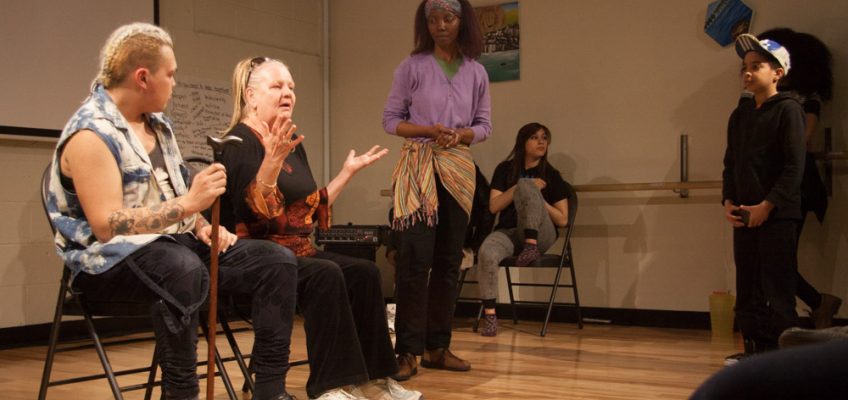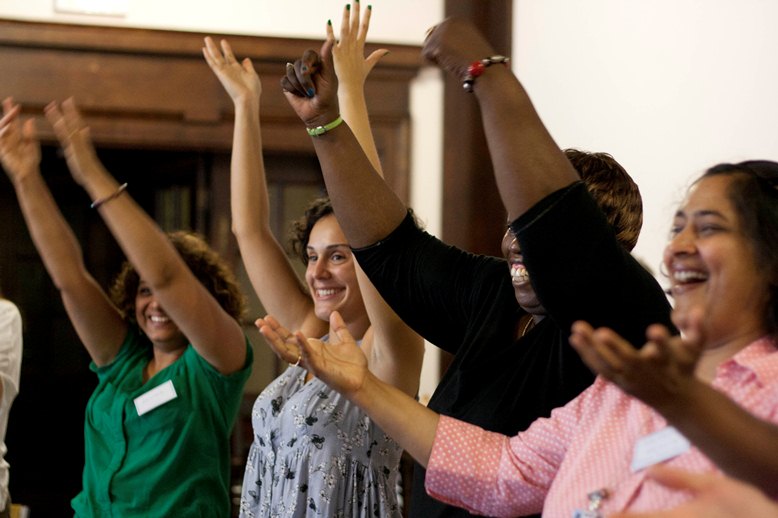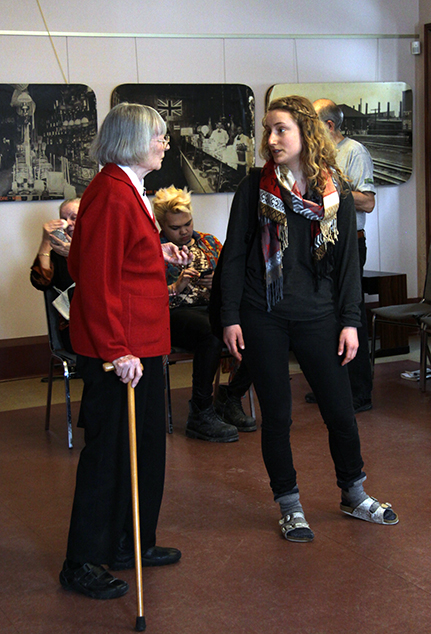MCT is happy to present you a new volunteer in our team: Christine Balt! Christine has been volunteering for a month and has already used many of her communication skills to help out with our projects. She has jumped onboard the promoting and booking our show Mixed Messages. She is very eager to make the most of her talent within MCT’s work and it is a pleasure to have her around.
Here is a short interview, for you to get to know her better!
So Christine, I am curious to know about where you are from and what brought you here?
I am from South Africa, I was born in Johannesburg. I originally came here for my husband so I thought I would really like to continue to do what I was passionate about in South Africa: community theatre. I was involved in a lot of that, back in South Africa, especially with rural communities and low income kind of settlements, with people living there. So I did some research and that’s how I discovered Mixed Company Theatre! I am learning a lot through volunteering here, especially how forum theatre is done in Toronto and the different projects they have. So yeah it’s been quite exciting for me!
Did you notice many differences between what you have seen in South Africa and here?
Oh yeah, wow it is crazy but it’s still interesting because some of the underline issues have a lot in common. In rural schools in South Africa it was mainly dealing with teenagers and AIDS awareness. That’s a big issue, especially in the area I lived in. So a lot of the work that we did was about Aids but it was also about issues very much connected with Mixed Messages and sexual consent and offering a platform to be able to make the right choices. So, there is a lot of overlap. In South Africa it’s more about rural communities and countryside and over here it is very much like an urban environment but that also generates problems and issues, especially within the city communities and I find that quite interesting to see the contrasts between the two.
And in terms of settling in, since you have been to different places, is anything special about Toronto?
Ah, yeah, and I think that’s with every city. Oh man, in the past, living in Asia it was a totally different kind of set up because you were part of that “Expats” group and you got your like mini-community within the broader community that you are living in. Here it’s different because I came by myself; I wasn’t part of like a job that attracted expats exclusively so I did feel like a little bit of a lone wolf floating about, trying to find where I need to be. And also with Toronto, they are so many different little communities within communities that it is a bit overwhelming because you are presented with all these opportunities, which is exciting, but at the same time, you start to thinking, so, ok, how do I go about fitting in, blending in, living like a local and these are challenges that you have to learn on your own.
And if you could have your own project, what would it be?
That’s a good question…Based on what I have experienced in South Africa and what I’d like to try there because it is something that I grabbed from you guys, is something similar to the InterGEN project. Because I think that’s a big issue in South African communities as well. The reason for the gaps that exist between younger people and older adults is not only because of a completely different lifestyle, it is because there are generations of South African who have passed away due to AIDS or due to violence so you have a lot of communities where you have adolescents and young adults, early twenties, living alongside older adults and there is an entire generation that is missing, that has either been taken away because of poverty or a lot of serious issues that face rural communities. So I would love to see how that kind of project would work in this setting in South Africa.
Anything else you’d like to tell MCT and the people reading us?
I really feel like I have joined a great community of people, who are community minded and have the same values as I do. I kind of feel that I found my tribe, which is an important thing to do when you move to a new city, especially because I had kind of built up my tribe and then I had to remove myself out of it and set roots down, from scratch, and that’s hard and challenging. But it feels good to be here and I am learning a lot and hopefully want to stick around for a while!
Thank you Christine!





